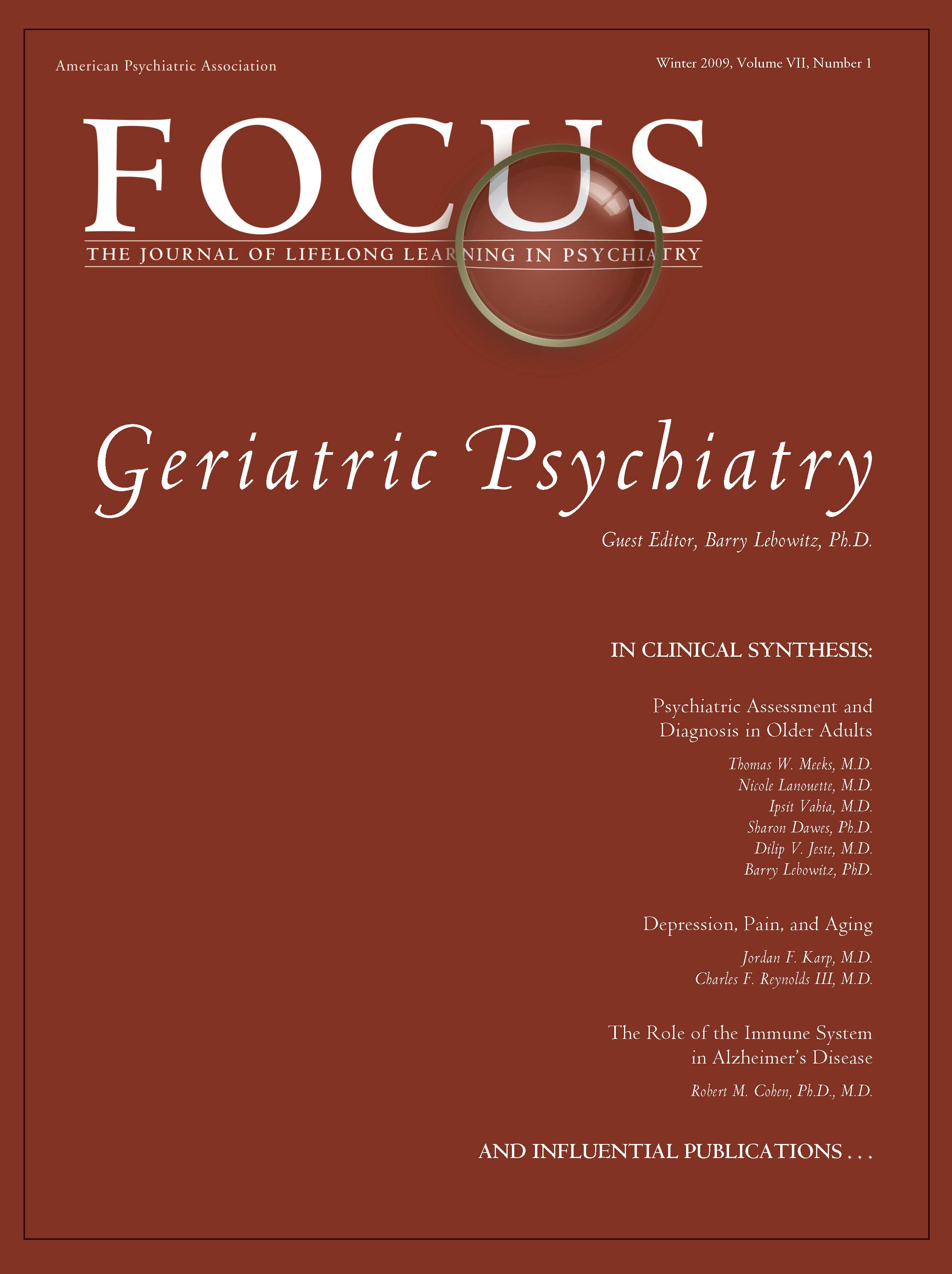Depression in Late Life: Review and Commentary
Abstract
Depression is perhaps the most frequent cause of emotional suffering in later life and significantly decreases quality of life in older adults. In recent years, the literature on late-life depression has exploded. Many gaps in our understanding of the outcome of late-life depression have been filled. Intriguing findings have emerged regarding the etiology of late-onset depression. The number of studies documenting the evidence base for therapy has increased dramatically. Here, I first address case definition, and then I review the current community- and clinic-based epidemiological studies. Next I address the outcome of late-life depression, including morbidity and mortality studies. Then I present the extant evidence regarding the etiology of depression in late life from a biopsychosocial perspective. Finally, I present evidence for the current therapies prescribed for depressed elders, ranging from medications to group therapy.
(Reprinted with permission from Journal of Gerontology : MEDICAL SCIENCES 2003, Vol. 58A, No. 3, 249–265)



